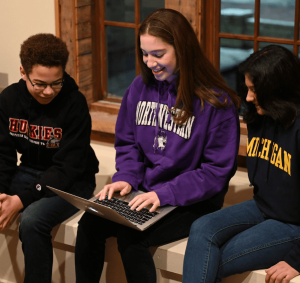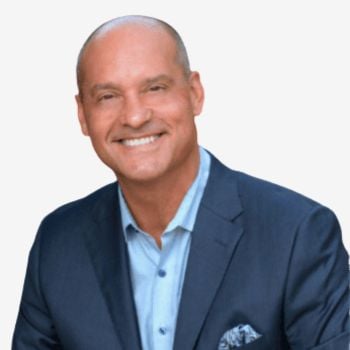In recent years America has confronted the harsh reality that racism is still alive and well. News outlets have been inundated with racist rhetoric, footage of police brutality against people of color, and protests by people working to confront these grim realities. We’re only a few months into 2022, and already we’ve already seen bomb threats directed toward Historically Black Colleges and Universities.
As the reality of systemic racism in America has come more centrally into the cultural conversation, Historically Black Colleges and Universities (HBCUs) have become major battlegrounds in the culture war. HBCUs’ critics claim they are no longer necessary in today’s society; their advocates claim that they are more important than ever. Let’s talk about HBCUs—where they originated, what role they currently serve, and why they are only likely to become more relevant as the 21st century progresses.
A Brief History of HBCUs
Like many historical centers of Black culture, HBCUs were established in the early 1800’s. Between about 1830 and 1860, HBCUs began popping up across the United States. They were primarily founded to create institutions dedicated to educating recently freed slaves—a harsh but necessary acknowledgment of the realities of life in a slave nation. Though HBCUs were originally founded to educate black students who were shut out of predominantly white institutions, they have always also enrolled non-black students.
The very first HBCU to open its doors was Cheyney University of Pennsylvania, in 1837. Today, there are 107 HBCUs across the country serving tens of thousands of young students looking to achieve academic excellence. Some well-known HBCUs include Tuskegee University, South Carolina State University, Spelman College, Howard University, and Morehouse College.

Your College Admissions Journey, Mapped Out!
Introducing our college planning timeline with a handy checklist of essential tasks, a step-by-step guide for every grade level, from freshman to senior year, AND financial aid, college applications, extracurricular activities, and more.
HBCUs offer their students a wide range of majors and areas of study. Popular areas of study for HBCU students include business administration, law, psychology, biology, and other sciences. Notably, recent years have seen exceptional growth in HBCUs’ Science, Technology, Engineering, and Mathematics majors, with 25% of all African American STEM graduates coming from HBCUs.
Frequently called the Black Ivy League, the most elite HBCUs (including schools like Dillard, Fisk, Hampton, Howard, Morehouse, Spelman, and Tuskegee) have a long and storied history of excellence, having educated some of the most influential and recognizable African American politicians, activists, academics, athletes, and artists. In fact, Martin Luther King Jr., current Vice President of the United States Kamala Harris, actor Samuel L. Jackson, film director and writer Spike Lee, NFL Hall of Fame wide receiver Jerry Rice, and many more are HBCU graduates!
As you can see, HBCUs have had an incredible impact on the Black American community. The legacy of HBCU graduates has impacted the entire world, but what is the place of these institutions in our modern society? Does it still make sense to maintain bastions of Black culture in a country that is—at least in theory–trying to move away from racial segregation?
Are HBCUs Important in Modern Society?
Recently, there has been discussion about how and even if HBCUs are important in the 21st century. Critics argue that HBCUs are no longer required in a world where people of color can study at any university they want. Unlike in generations past, no American colleges officially ban Blacks from studying, so—since Blacksand all POCs can theoretically study anywhere—why are HBCUs still necessary?
Here are five good reasons:
HBCUs Improve the Future of Black Communities
Nearly 20% of all Black college graduates come from HBCUs. This is a significant portion of the ever-growing community of degree-holding African Americans, and HBCUs’ focus on providing financial aid and excellent educations at a reduced cost helps to grow that community year over year. Doing so helps reduce the wage inequality gap and helps African Americans earn higher wages, thereby improving future Black communities and families.
HBCUs Provide Confidence In Identity
HBCUs help students learn to identify as academics, scientists, business professionals, accountants, engineers, or artists without throwing out their core identity as African Americans. In every course, instructors approach each topic both from a general point of view and from a specifically African American cultural perspective, as well.
At HBCUs, Black students feel heard, seen, and accepted for who they are. Going out into a professional world that often seems at odds with black identity, HBCU graduates have built up distinct confidence in their identities, learning how to excel in their fields while retaining who they are.
HBCUs Reduce Under- and Unemployment
As of 2015, young African Americans’ unemployment rate has exceeded 15%. Nearly twice the rate as that of White Americans, this is a staggering number. HBCUs fill the workforce with qualified and well-rounded African American students, combatting the Black community’s epidemic of youth under- and unemployment.
HBCUs Provide Safety and Security
Psychologist Abraham Maslow, in his A Theory of Human Motivation, outlines what he called the human Hierarchy of Needs. Maslow observes that, for someone to achieve their fullest potential, they must first meet their basic needs. These basic requirements include physical, emotional, and psychological needs. HBCUs do just that.
In addition to safety and security, HBCUs provide psychological support for POC students. African Americans can study in an environment filled with other students who understand their background, culture, and way of life. This helps to foster understanding and nurture growth.
Unfortunately, even supposedly ‘open’ spaces can feel unwelcoming to anyone who might seem different. In universities where Black students are the minority, they may not feel safe from discrimination or judgment. HBCUs provide a space where Black students can study without fear. They are safe and secure spaces for budding African American students to learn in.
HBCUs Provide Aid to Underserved Students
HBCUs have a long history of providing aid to low-income and first-generation students, helping students who otherwise couldn’t afford higher education. This focus on financial aid and support within the African American community helps young students break the cycle of poverty and achieve a higher education, even if their parents or grandparents couldn’t.
Nearly 73% of HBCU students qualify for Pell grants, in many cases coming from low-income households where the cost of college is a high barrier to completion. HBCUs serve these students—many of them first-generation students who otherwise might not attend. And these schools, which represent only 3% of post-secondary institutions, produce about 20% of all African American graduates—and 25% of those in STEM, according to the United Negro College Fund.
Final Thoughts
HBCUs have a rich history of providing high-quality education to the Black community. They are committed to advancing Black excellence and improving the lives of African Americans across the nation. For this reason—and countless others—HBCUs are crucial to the African American college experience.
At HelloCollege, we make it our mission to help young students get the most out of their higher education. We guide young students through the admissions process, help them choose a place of study, and inform them of what they can expect from college once they arrive. We are dedicated to improving the lives of students across the country. That’s why we have made it our mission to shine the spotlight on the amazing options students have at America’s 107 HBCUs.
*This article was co-authored by my fellow HBCU alum, Leah Powell. We’ve spent many joyous hours reminiscing about and paying homage to our Alma Maters Tuskegee University and Spelman College, respectively. Since our beloved HBCUs contributed greatly to our transition from high schoolers to professional women, we dedicate our lives to the development and support of students and their educational and professional success.



